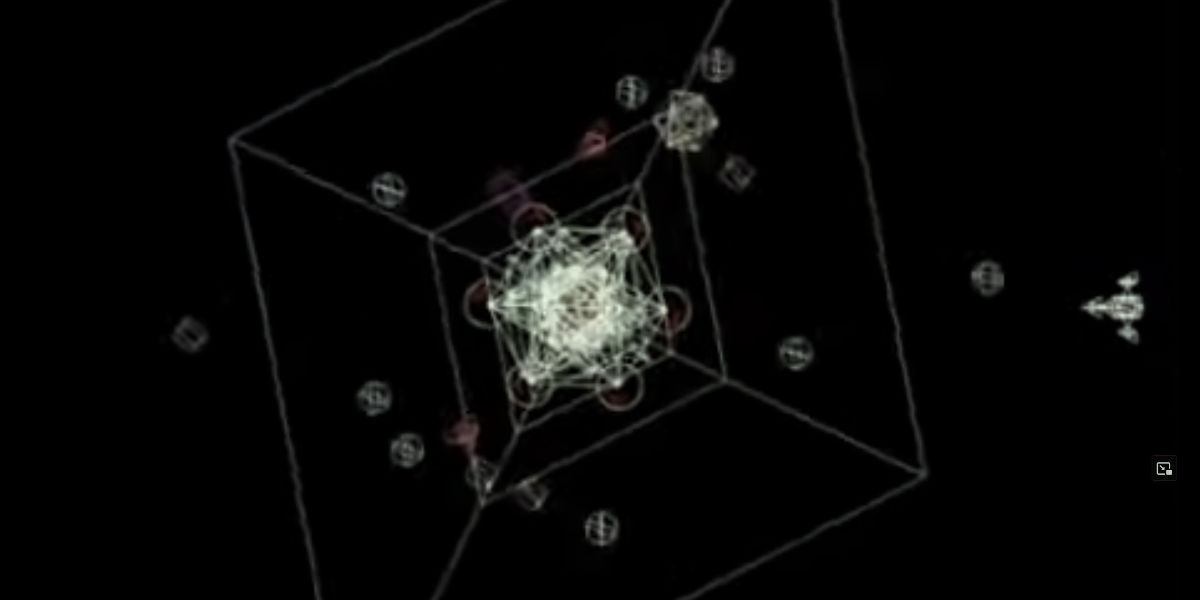In every corner of the gaming world, there are stories whispered in hushed tones. Tales of games that aren't just immersive, innovative, or addictive, but somehow…more. Games infused with an aura of danger, of mystery. If you bend your ear to these whispers, you will hear the legend behind Polybius. One of the most captivating of these is the Polybius urban legends, the narratives wrapped around a supposed arcade game of spectral status. But how much of this fascinating folklore is rooted in reality, and how much is merely myth?
The Polybius Story Breakdown
The tale of Polybius rests on a simple but unsettling premise. In the autumn of 1981, a strange new arcade game called 'Polybius' is said to have appeared in several arcades around the Portland, Oregon area. This game wasn't your standard Pac-Man or Space Invaders; it was something different, something hauntingly hypnotic. It reportedly produced intense psychological effects on its players, inducing nightmares, memory loss, even suicidal thoughts.
Then, just as suddenly as it appeared, the game vanished, leaving no physical evidence of its existence. Its legacy, however, persisted, growing into a chilling tale of government conspiracy, mind control experiments, and a game that might just play its players.
Does the Polybius Game Really Exist?
But here's the kicker: despite years of research, despite a thriving online community dedicated to unearthing the truth, no one has ever produced a shred of definitive proof that Polybius ever existed at all. Not a single arcade cabinet. Not one ROM. No verified gameplay footage. No designer, programmer, or manufacturer. Nothing but the lingering question: does the Polybius game really exist?
It is a question that puzzles and captivates, a riddle around which a complex web of theories and myths has been woven. Some hold that Polybius is nothing more than a myth, a tall tale born from a mix of arcade folklore, Cold War paranoia, and good old-fashioned urban legend embellishment.
Others staunchly attest that there's no smoke without fire, that the sheer prevalence of the Polybius myth points to some kernel of truth. They put forward theories of government experiments, linking the legend to real-life projects like the CIA's MK-Ultra mind control program. Could the Polybius have been a tool for subliminal messaging or brainwashing? Could it have been a part of another unknown, unnamed government project?
In Pursuit of the Polybius Urban Legends
The absence of concrete evidence has done little to dampen the allure of the Polybius urban legends. Gaming enthusiasts and internet sleuths alike have been drawn into the quest for truth amid a sea of speculation. The tantalizing mystery keeps the legend alive, enticing us all to dig deeper, search harder, and pull at every thread of possibility in the hope of discovering the reality behind the enigmatic Polybius.
Unraveling the Polybius Myth
When trying to untangle the conundrum that is the Polybius myth, historians and gamers alike delve in almost equal measures into realms of the arcane and the digital. The game, said to have operated in the early '80s, has the kind of plot that could rival a bestselling Normandy thriller.
It is said to have inspired psychoactive effects leading to amnesia, sleep disorders, terrible nightmares, and in some instances, even suicides. But is there any truth in these chilling telltales? Or is it a work of fiction that has been propped up by the anecdotal 'evidence' of a few retired gamers with avid imaginations?
The Origins and Disappearance
Polybius was reportedly a product of 'Sinneslöschen, a shadowy, anonymous group with ostensible links to the underworld. With unerring stealth, the game found its way into the gaming arcades of suburban Portland, Oregon, sometime around 1981, only to disappear a few months later.
The game was supposedly a puzzle-shoot-em-up kind of mashup with vector graphics somewhat akin to Tempest. Its visuals, while bewitchingly alluring, reportedly led players into states of dreadful cognizance.
What made the Polybius myth even more intriguing is that once a week, in the dead of night, men in black suits were reportedly seen collecting data from these machinated leviathans for purposes unknown. However, no concrete evidence has ever been unearthed proving the existence of this game or the mysterious incidents surrounding it.
Fiction or Reality?
Given all these colorful yet strange anecdotes, one begs to ask – was Polybius a contraption for some secret government project? or simply a figment of peoples' imaginations, possibly fuelled by the fear of the unknown? Over the years, the line between truth and fiction has seemed to blur increasingly in the Polybius saga, complicating matters even further.
Traipse Through the Evidence
While believers relentlessly cling on to the Polybius legend, the skeptics point to the gaping holes and inconsistencies that litter the tale. No former arcade owners or workers from the era recall such a game, and there are no physical tokens of its existence – not a game cabinet, not a ROM, and not even a screenshot.
Games that were supposedly similar to Polybius, like Tempest, indeed existed but did not induce the psychoactive effects ascribed to Polybius. Moreover, the word 'sinneslöschen' translates loosely to the erasure of senses, hardly a term a serious game developer of any era would consider using.
The case, thus, seems to heavily lean towards the side of the skeptics. While the name invokes intrigue and chills for some, it likely represents a cleverly conjured work of fiction, a technocultural urban legend of our times.
Concluding Thoughts
In the end, the Polybius legend serves as a testament to the power of community myth-building and the perceptiveness of the human mind. It's a fabulously entertaining narrative that encapsulates the era's cultural anxieties while also having a sniff of conspiracy theory. Unfounded or not, the story keeps alive an element of mystery that seems to forever enchant the realms of arcade gaming, decades after these brick-and-mortar establishments have been superseded by their digital counterparts.




